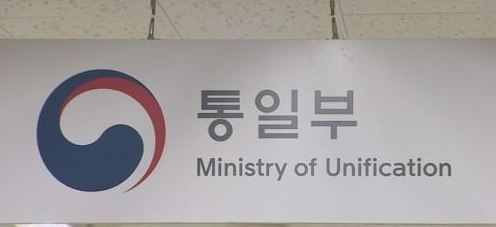Nearly 40 percent of this year’s budget for inter-Korean cooperation has not been spent amid a lull in bilateral relations.
Most of the unspent budget had been set aside for South Korea’s provision of rice to North Korea through the World Food Program, which has been halted due to Pyongyang’s refusal.
According to data from the Unification Ministry, released by Liberty Korea Party Rep. Yoo Min-bong on Thursday, the government approved expenditure of 92.1 billion won ($77 million) from the inter-Korean cooperation fund for this year.
Most of the unspent budget had been set aside for South Korea’s provision of rice to North Korea through the World Food Program, which has been halted due to Pyongyang’s refusal.
According to data from the Unification Ministry, released by Liberty Korea Party Rep. Yoo Min-bong on Thursday, the government approved expenditure of 92.1 billion won ($77 million) from the inter-Korean cooperation fund for this year.

Of this amount, 53.8 percent, or 49.6 billion won, has been executed as of the end of August, the Unification Ministry said. Meanwhile, 36.4 billion won, or 39.5 percent, of the approved annual budget remains unspent.
The ministry did not disclose how much of the 6.2 billion won earmarked for running an inter-Korean liaison office -- which was approved in January -- has been used.
Total expenditure on inter-Korean cooperation may be slightly higher if the operational expenses of the office are included.
Of the unspent amount, some 27.3 billion won had been set aside for South Korea’s plan to provide 50,000 tons of homegrown rice to the North. Seoul had planned to pay the international price of the rice and domestic transportation costs to the Ministry of Agriculture, Food and Rural Affairs and Korea Agro-Fisheries & Food Trade Corp.
However, North Korea has refused to accept the rice in protest of South Korea’s joint military exercise with the United States in late July.
Due to an impasse in inter-Korean relations, some projects for which Seoul says it has executed the budget were never realized.
Seoul paid $11.8 million to the WFP to transport, distribute and monitor the rice in North Korea, but the money has not been spent yet.
Part of the budget was earmarked for the provision of Tamiflu antiviral medication (3.56 billion won) and video reunions of families separated during the Korean War (3.1 billion won). South Korea has purchased the drugs and equipment, but has been unable to proceed due to the North’s tacit refusal.
The only project that managed to deliver something to North Korea and allowed the two Koreas to work together this year was the $8 million donation to the WFP and UNICEF in June, to support the health care and nutrition of children and pregnant women.
Last year, 11 percent of the approved budget from the inter-Korean cooperation fund was left unspent.
Due to the changing nature of inter-Korean ties, low execution rates have been a problem for the cooperation fund.
“For reasons of specificity of inter-Korean relations, the allocation of the inter-Korean cooperation fund is not made public, and it is difficult to verify budget execution in detail for each project,” Rep. Yoo said.
“We need measures to enhance the transparency from budget allocation to the execution of the cooperation fund.”
By Kim So-hyun (sophie@heraldcorp.com)








![[KH Explains] How should Korea adjust its trade defenses against Chinese EVs?](http://res.heraldm.com/phpwas/restmb_idxmake.php?idx=644&simg=/content/image/2024/04/15/20240415050562_0.jpg&u=20240415144419)











![[Today’s K-pop] Stray Kids to return soon: report](http://res.heraldm.com/phpwas/restmb_idxmake.php?idx=642&simg=/content/image/2024/04/16/20240416050713_0.jpg&u=)